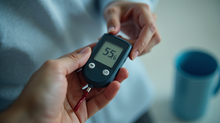Stroke Awareness
- Maureen Sullivan RN, CEN, CDE
- Sep 2, 2015
- 2 min read

Stroke Awareness
According to the American Stroke Association, stroke is the #5 cause of death and the leading cause of disability in the United States. Approximately 795,000 Americans suffer a new or recurrent stroke annually. A stroke occurs approximately every 40 seconds. In addition, it is estimated that someone dies from a stroke every 4 minutes. With such staggering numbers and potentially poor outcomes, it is imperative that signs/symptoms of a stroke be taken seriously. Emergency medical treatment offers the best outcomes for recovery and rehabilitation.
Everyone has some element of” risk factors “for stroke. Some risk factors cannot be changed, such as a person’s age, race, sex, or previous health status (including a prior stroke). Modifiable risk factors- those risk factors that we CAN change- are important aspects of self-management that we can all do to reduce our personal risk of stroke, as well as other chronic diseases.
Modifiable risk factors include the following:
Inactivity
Overweight/obesity
Smoking
Poor diet ( saturated fats, high cholesterol, processed foods)
Poorly controlled diabetes, cardiac disease, hypertension
These risk factors are areas of improvement one can address to improve overall health. Increases in activity (simple daily walks to start), modest weight loss, smoking cessation, and a diet higher in fresh fruits/vegetables are easy ways to incorporate positive lifestyle changes. Risk reduction for stroke will also lower risk factors for heart disease as well. Truly a win-win situation.
Signs and symptoms of a possible stroke include: Remember the word “FAST”->
F= face drooping
A= arm weakness
S= speech difficulty
T= time to call 911
Although these symptoms may be unrelated to stroke, emergency care should be sought. Time is brain; brain cells are being deprived of oxygen during a stroke, and the sooner a stroke is treated, the better the outcome will be.
For more information on stroke symptoms, emergency care, and stroke/heart health information, visit the American Heart Association & National Stroke Association.
www.Heart.org and www.Stroke.org



































Comments